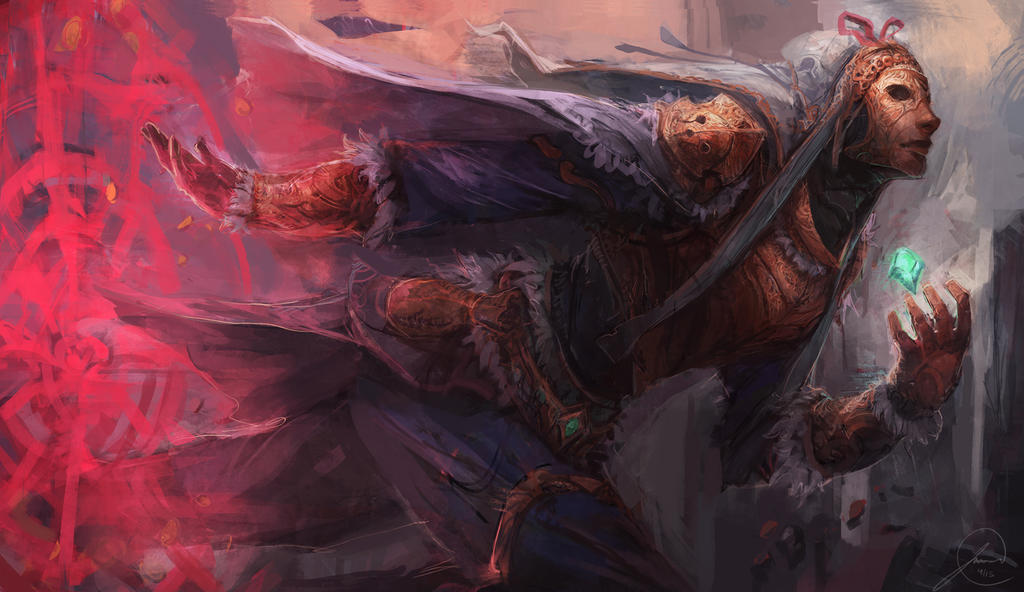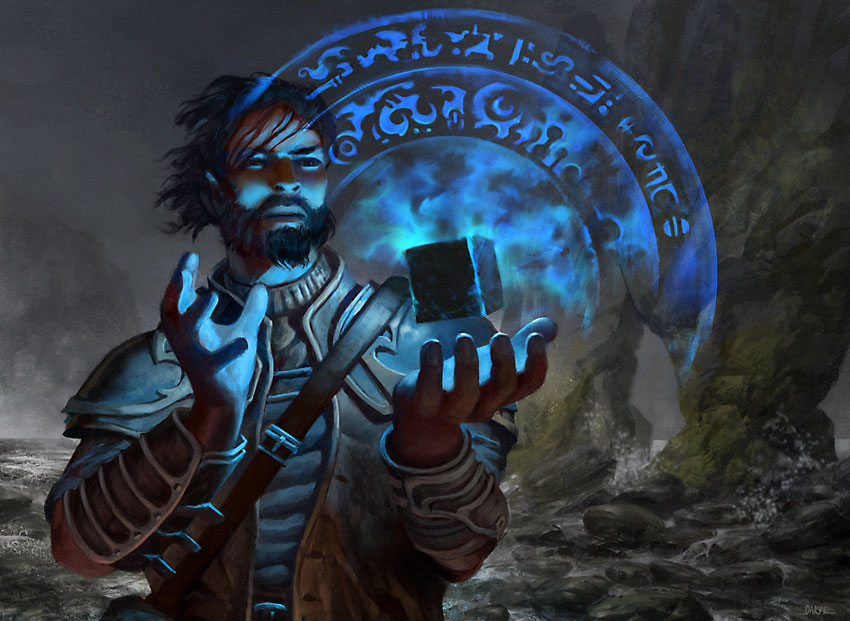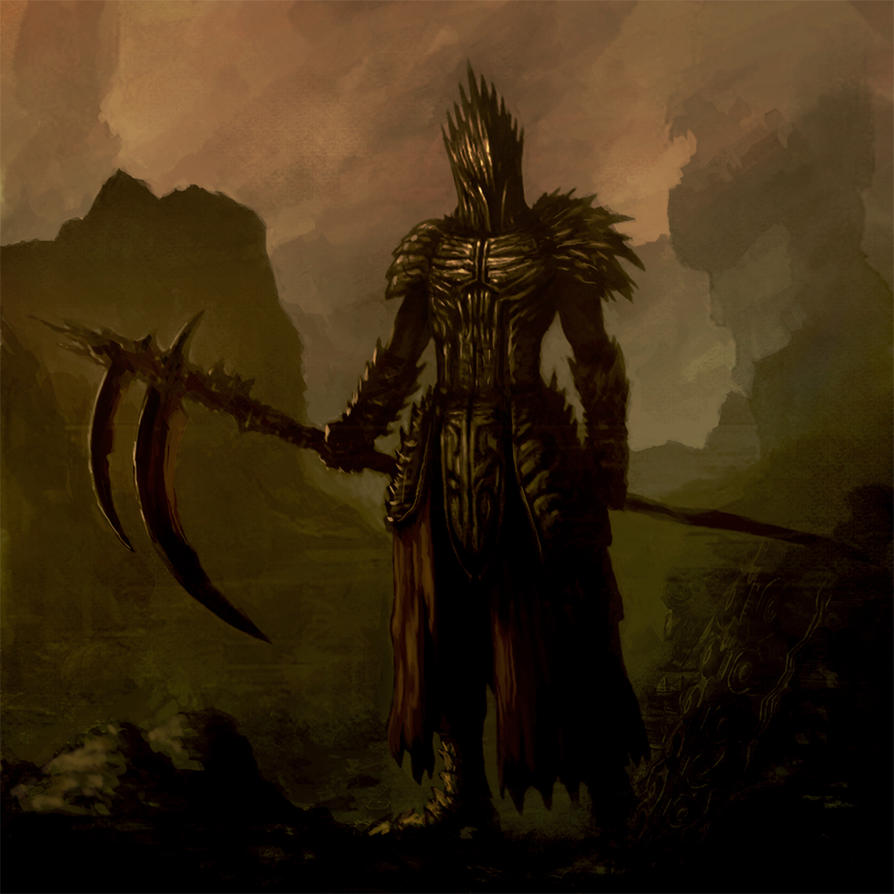It's been such a long time since I've posted anything, I promise I'm not dead, and I am still working on Providence! As evidence, I'm periodically going to do these Ability Spotlights, just so's everyone can see what I'm working on, and get a feel for the kind of game I'm aiming toward.
Today's Ability Spotlight, and the first Ability Spotlight ever, is Time Manipulation;
Time Manipulation
You have the power to control your own personal time, appearing and disappearing from one moment to the next. As your mastery of time expands, you can rewind time, slow time for your enemies, and even cull fragments of lost time for yourself.
Your Hit Points per level rises by 2.
Your Skill Points per level rises by 2.
You gain a +1 bonus to Will.
You can use Time Manipulation for a number of rounds per day equal to your History skill. Whilst under the effect of Time Manipulation, you gain a +2 bonus to Speed. As a Minor action, whilst under the effect of Time Manipulation, you may teleport a number of squares up to half your Speed.
Time Manipulation can be ended as a free action.
When you end the effect of Time Manipulation, you become Fatigued for a number of rounds equal to twice the number of rounds you spent manipulating time. You can't activate your Time Manipulation whilst Fatigued. If you become Fatigued during your Time Manipulation, the Time Manipulation continues as normal.
Ability Synopsis
Time Manipulation is a character ability that was modelled from the old Shadowdancer class, and by extention, the pre-rework Darkness Affinity ability. The ability focuses on high mobility and makes extensive use of teleportation, allowing characters that utilise it a fast paced hit-and-run playstyle. The ability can be used by mage or rogue style characters to chase, reposition, or escape, while heavier characters can make use of the increased speed and teleportation to gain Combat Advantage or stick to a Marked target.
Time Manipulation is one of several Round Per Day (RPD) abilities, and so its actual in game use tends to be limited at the beginning of a campaign. Many players do no choose talents that increase skills, so a 1st level character will have approximately 8 RPD of use of this ability. Unlike Berserk Rage or Bardic Song, where choosing talents to increase duration are encouraged to compensate for this early deficite, Time Manipulation's bonus to speed doesn't offer a direct numerical advantage in combat.
However, as the campaign continues, Time Manipulation becomes more and more impactful. The bonus to Speed, while seemingly small for the limitations of an RPD ability, allows for outmaneuvering enemies that would otherwise be impossible to pin down.
Without any other buffs or Talents, a Human character has a base speed of 6. This rises to 8 under Time Manipulation, and when combined with the Teleport move, a character can cross 12 spaces and still make an attack. If the character decides to move again as a Standard Action, that's 20 spaces. If the character makes a Run action for both of their moves, the character can cover a whopping 24 spaces. For reference, that pretty much crosses the whole board in a turn. In real life terms, that's almost 15 mph!
The teleportation aspect of Time Manipulation is representative of your character slipping out of time to move faster, and is a large part of the ability. Teleportation allows you to move between obsticles easily or flank foes that would otherwise be impossible to get around. Huge creatures or creatures with the Reach trait can be treacherous to flank given their extended attack of opportunity range. With the ability to teleport at a whim, you do not provoke such attacks, and by using multiple minor actions, you can teleport twice to get out of attack range as well.
A lot of utility is tied up in the teleport move. Even though you're moving through time, the normal rules for teleporting apply, namely you can teleport in any direction, including vertically, and you need to see where you are going. You can hop between the bars of a jail cell or on the back of a giant, and then just as easily teleport away if that move turned out to be a bad idea.
Key Talents
In keeping with the themes of speed and maneuverability, the Talents found in Time Manipulation improve your speed, and find more creative ways to use your teleport.
Teleporting Stride allows you to change your basic move action into another teleport, this time at your regular speed. While it may seem silly on its own ("Why teleport the distance I can walk, in the same time that I walk it, when I can just walk?"), it allows you freedom of movement, and interacts with other talents that only work when you Teleport.
Dimensional Snatch is one such ability. The premise is very simple; when you teleport, pick one adjacent willing ally or one medium-sized enemy that grants Combat Advantage to you. That target teleports with you, landing in any square you choose. This allows you to reposition key members of your party around the battlefield, such as rescuing the wounded or setting up unlikely ambushes. When combined with Lethal Jump, which makes enemies you teleport next to you grant Combat Advantage, you can theoretically leap to the other side of the dungeon, grab the enemy boss wizard, and teleport him back to the awaiting arms of your party members.
Rewind is one of the few Powers available to Time Manipulation. It can only activate it whilst using Time Manipulation, and even then it costs an additional RPD to activate. When a d20 roll is made involving you, you can choose to reroll that d20. There is no limit to how many times that dice can be rerolled, but each attempt costs another RPD. While this may sound game breaking, and indeed this power has no hard per day limit, all of the powers of Time Manipulation require RPD to work. At early levels this power is especially taxing because of how few RPD you have access to, and against multiple attacks you must pay that cost for each d20 roll against you. On the other hand, Rewind works with any d20 roll, including attacks, saving throws, or skill checks so long as the roll involves you in some way. Just fluffed the critical jump across the chasm? Rewind. Missed the attack that can kill the boss? Rewind. Failed to save against full petrification? Rewind as hard as you can!
Overdrive is perhaps one of the most influential Powers in the game. When activated, you roll Initiative again, and may act on both Initiative steps. The cost of this is (you guessed it) you spend an RPD to activate it, and your new turn counts as exactly that - a new turn. This means that you burn through RPD at twice the speed, buffs and debuffs last for half the time, and you can potentially do twice as much damage or move twice as fast. As far as fluff is concerned, the actions are taken at the same time, so if it were real life, you'd be blinking backward and forward in a blurr of activity! Remember that speed example earlier? Your character could move at 30 mph (48 spaces in 6 seconds). That is insanity. While this frenetic pace is incredible and great for ending encounters quickly, the toll of time adds up. Once the effect of Time Manipulation ends, you become Fatigued for a number of rounds equal to twice the amount you spend under the effect, a penalty only exacerbated by Overdrive. For every round in effect, you will suffer a -2 penalty to Speed and Attack Rolls for 4 rounds. Use this Power wisely, for time is of the essence...
Although not key Talents by themselves, the Force elemental boosting family of Talents lies within Time Manipulation. What few damaging options available to Time Manipulation all deal Force damage, and as such the ability has good synergy with Force based spellcasters.
Recommended Builds
Time Manipulation benefits from a good set of Hit Points and Skill Points per level. Along with the hard to find bonus to Will, this means the ability is fairly splashable with many other abilities. However, there are some that stand out amongst the crowd. These are just a few ideas, there are hundreds of builds to tinker with, especially with such a flexible ability.
The Ghost Hunter (Time Manipulation + Hunter's Quarry + Radiant Affinity)
Historically, ghost and banshees and such have proven to be the bane of many an adventuring party, given they ignore most attacks, and only take half damage from the rest. Time Manipulation's high mobility kit allows it to keep up with Incorporeal and Insubstantial targets, while the Force elemental talents allow a character to deal full damage to such targets. The extra damage from Hunter's Quarry and its accompanying Talents will help confirm kills and ignore any Resistances. Radiant Affinity builds on this, as the Radiant family of talents can help exploit the weakness to Radiance most undead creatures possess.
The Efficient Berserker (Time Manipulation + Berserk Rage + Bound Weapon)
The Force Mage (Time Manipulation + Sorcery/Spellbook + Arcane Soul)
With the normalisation of Spells, spellcasters have become very utility based, often choosing a selection of similar damage spells to capitalise on any particular weaknesses rather than sticking to one particular theme. Because Force elemental attacks have no natural resistances nor vulnerabilities, they are often used as a middle ground spell, one to learn in case you don't have a particular enemy weakness in your repitoire. However, by focussing on empowering Force spells with Time Manipulation's Force family Talents, the term "jack of all trades" becomes "always effective megadeath spells." Time Manipulation allows you to move out of harms way whilst still allowing you to bombard your enemies, so flavour your slippery spellcaster to taste with the power or Sorcery or the utility of Spellbook. Arcane Soul isn't required, but the consistent damage and further buffs to spellcasting it offers is very difficult to offset.
The Time Thief (Time Manipulation + Sneak Attack + Animal Companion)
 With Lethal Jump providing easy Combat Advantage, Time Manipulation lends itself easily to Sneak Attack. If there was one detractor, the Combat Advantage granted by Lethal Jump does not last past the turn, so you must keep jumping around a target to continue to benefit from Combat Advantage. This means you cannot perform a Full Attack Action off the back of Lethal Jump, but you can always deal double damage when you teleport. Knowing that, it would be better to take Axeman, Thug, or Swordsman from Sneak Attack to use stronger weapons. Animal Companion is a utility choice. With so many movement and combat options build into Animal Companion, and the teleportation granted by Dimensional Snatch, you can build a highly mobile duo. Canines and Felines can benefit from Combat Advantage moreso than other pet families, although you can create an interesting combo with a Raptor pet and Shared Vision. With Shared Vision allowing you to see what your pet sees, you can have your pet fly overhead to grant yourself full vision. This allows you to teleport over walls and obstructions you otherwise couldn't.
With Lethal Jump providing easy Combat Advantage, Time Manipulation lends itself easily to Sneak Attack. If there was one detractor, the Combat Advantage granted by Lethal Jump does not last past the turn, so you must keep jumping around a target to continue to benefit from Combat Advantage. This means you cannot perform a Full Attack Action off the back of Lethal Jump, but you can always deal double damage when you teleport. Knowing that, it would be better to take Axeman, Thug, or Swordsman from Sneak Attack to use stronger weapons. Animal Companion is a utility choice. With so many movement and combat options build into Animal Companion, and the teleportation granted by Dimensional Snatch, you can build a highly mobile duo. Canines and Felines can benefit from Combat Advantage moreso than other pet families, although you can create an interesting combo with a Raptor pet and Shared Vision. With Shared Vision allowing you to see what your pet sees, you can have your pet fly overhead to grant yourself full vision. This allows you to teleport over walls and obstructions you otherwise couldn't.








